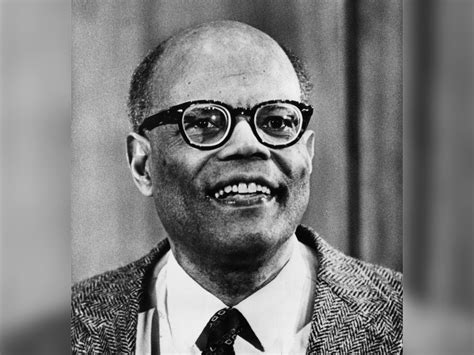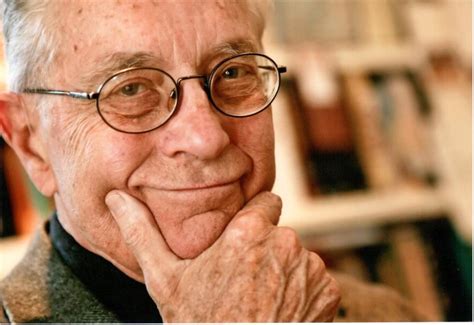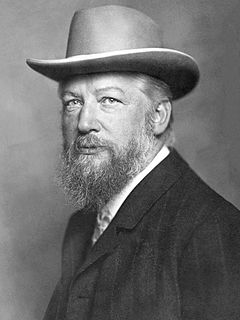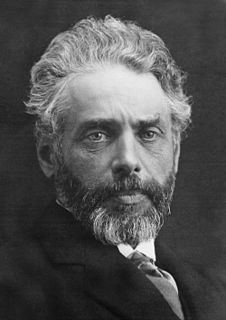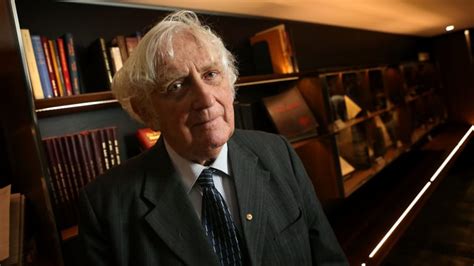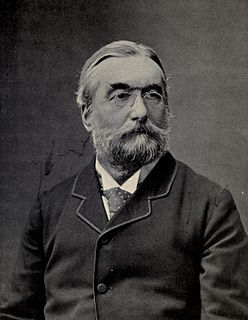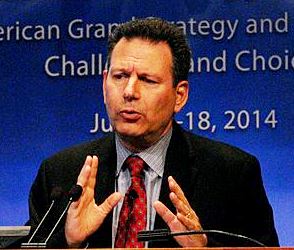Top 1200 Nineteenth Century Quotes & Sayings - Page 4
Explore popular Nineteenth Century quotes.
Last updated on April 22, 2025.
Just as the French of the nineteenth century invested their surplus capital in a railway-system in the belief that they would makemoney by it in this life, in the thirteenth they trusted their money to the Queen of Heaven because of their belief in her power to repay it with interest in the life to come.
Darwin's theory of evolution is the last of the great nineteenth-century mystery religions. And as we speak it is now following Freudians and Marxism into the Nether regions, and I'm quite sure that Freud, Marx and Darwin are commiserating one with the other in the dark dungeon where discarded gods gather.
Trade allegedly does not foster growth because when it begins, a flood of imports of factory origin destroys the handicraft manufacturing of the less developed country: the models for this are the effects of British exports of textiles and of iron in India and Chile in the first half of the nineteenth century.
Heroes have gone out; quacks have come in; the reign of quacks has not ended with the nineteenth century. The sceptre is held with a firmer grasp; the empire has a wider boundary. We are all the slaves of quackery in one shape or another. Indeed, one portion of our being is always playing the successful quack to the other.
The major break in the understanding of manliness is not between, say, the nineteenth century and any particular preceding era but between my generation of Baby Boomers and the entire proceeding complex of teachings. In some ways, TR and Churchill have more in common with Homer and Shakespeare than they do with us.
It's interesting because with a lot of people who I've met in comedy, it seems not to matter what your background is. In terms of formal schooling - I feel like that's a nineteenth century term - but in terms of where you went to high school or college, or wherever, all that really is irrelevant, I have found, in comedy.
[About Francis Baily] The history of the astronomy of the nineteenth century will be incomplete without a catalogue of his labours. He was one of the founders of the Astronomical Society, and his attention to its affairs was as accurate and minute as if it had been a firm of which he was the chief clerk, with expectation of being taken into partnership.
In the nineteenth century one had to give all sorts of guarantees and lead an exemplary life in order to cleanse oneself in the eyes of the bourgeois of the sin of writing, for literature is, in essence, heresy. The situation has not changed except that it is now the Communists, that is, the qualified representatives of the proletariat, who as a matter of principle regard the writer as suspect.
The thing I'm particularly interested in is natural history. In its heyday, the mid- and late-nineteenth century, when people were going out and gathering the first huge caches of data and trying to understand what was living and growing everywhere, there was such a sense of freshness to that pursuit. It's very exciting.
Once upon a time, science, philosophy, and theology were disciplines largely undifferentiated from one another, and proving the existence of God was a fairly commonplace intellectual exercise. But as the scientific method became increasingly refined, particularly through the nineteenth century, science and religion grew apart.
The landscape in Montgomery and in the South is just saturated with imagery. Markers are everywhere. There's a marker for the first Confederate post office, there's a marker for a ball that Robert E. Lee hosted, there's a marker for where Jefferson Davis had a meeting. We love reminding people about all that was going on in the mid-nineteenth century.
The founding father of Albanian literature is the nineteenth-century writer Naim Frasheri. Without having the greatness of Dante or Shakespeare, he is nonetheless the founder, the emblematic character. He wrote long epic poems, as well as lyrical poetry, to awaken the national consciousness of Albania.
The nineteenth century, especially the second half of it, was a time of restatement in Ireland. After the famine, after the failed rebellions of the Forties and Sixties, the cultural and political desires for self-determination began to shape each other in a series of riffs on independence and identity.
The nineteenth century is a turning point in history, simply on account of the work of two men, Darwin and Renan, the one the critic of the Book of Nature, the other the critic of the books of God. Not to recognise this is to miss the meaning of one of the most important eras in the progress of the world.
This movement among the Jews is not new... This world-wide conspiracy for the overthrow of civilisation and for the reconstitution of society on the basis of arrested development, of envious malevolence, and impossible equality, has been steadily growing... It has been the mainspring of every subversive movement during the Nineteenth Century.
I was surprised by the level of sophistication of the Special Operation forces. Among them were anthropologists and PhD candidates. I felt because I understand the patterns of nineteenth-century jihad in West Africa that I was definitely going to be more advanced than they were in comprehending what the militant rallying cry was.
When the rate of return on capital exceeds the rate of growth of output and income, as it did in the nineteenth century and seems quite likely to do again in the twenty-first, capitalism automatically generates arbitrary and unsustainable inequalities that radically undermine the meritocratic values on which democratic societies are based.
The nineteenth century was the last moment in history when a relatively educated layperson could follow what was going on in the world of science and invention to a wide degree. Also, there were no "professionals". This was a time when amateur explorers, naturalists and enthusiasts were are still making major contributions to progress.
Nevertheless, what was made in the hope of transforming the world need not be rejected because it failed to do so – otherwise, one would also have to throw out a good deal of the greatest painting and poetry of the nineteenth century. An objective political failure can still work as a model of intellectual affirmation or dissent.
France placed the state above society , democracy above constitutionalism, and equality above liberty. As a result, for much of the nineteenth century it was democratic, with broad suffrage and elections, but hardly liberal. it was certainly a less secure home for individual freedom than was England or America.




